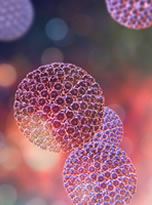Read and report vaccine reactions, harassment and failures.
Can rotavirus be prevented and are there treatment options?

It is very difficult to prevent rotavirus infection because the virus is common in the environment and resistant to most disinfectants and anti-bacterial cleaners. The virus can persist on the hands for several hours and on dry and hard surfaces for days.
Proper handwashing, especially before eating and after using the bathroom or changing diapers, is the best way to reduce the risk of virus transmission. As the virus can remain on hard and dry surfaces for days, it is also important not to use items that may be contaminated.
Once infection does occur, treatment includes oral fluid replacement to prevent dehydration. In serious cases, hospitalization and intravenous (IV) fluids may be required. Rotavirus infections can be fatal if severe dehydration occurs. Deaths from rotavirus usually occur in underdeveloped countries that lack sanitation and access to medical care.
It is possible to have rotavirus infection more than once since neither the vaccine or natural infection confers full immunity to all strains of the virus. According to the CDC, after one rotavirus infection, 38 percent of children will not have a second rotavirus infection, 77 percent will be protected against rotavirus diarrhea, and 87 percent will be protected against severe diarrhea. Any subsequent rotavirus infections will be less severe that the initial one.
IMPORTANT NOTE: NVIC encourages you to become fully informed about rotavirus and rotavirus vaccines by reading all sections in the Table of Contents, which contain many links and resources such as the manufacturer product information inserts, and to speak with one or more trusted health care professionals before making a vaccination decision for yourself or your child. This information is for educational purposes only and is not intended as medical advice.



